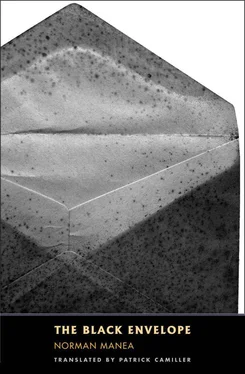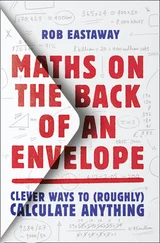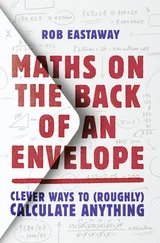Mr. Gafton was on his feet. In a white suit, with perfectly trimmed white hair and mustache, he was substituting for a distinguished epicurean, calm and skeptical in his wisdom. Just fancy! Marcel the substitute. Incredible! “Let’s be going. It’s late. Madam Veturia can’t bear me leaving her alone for so long.”
They got in each other’s way in the revolving door. Gafton took a step back and put his big pale hand on the lost man’s shoulder.
“Emilia is a gift of nature, my boy. A nature which rejects artifice. The word you hear all around you is: if. If it was possible, I’d do it. If I’d spoken up, if I’d dared. When we escape from this original quarantine, everyone will claim to have been a victim and denounce everyone else, just like now. And they’ll fight for the new padded seats, the new gold braid. And they’ll lie and cheat, my boy, just like now! They’ll lie in freedom, as in today’s captivity. Whereas Emilia dared to—”
“Just a moment,” cried the novice. “Did you say captivity? You, Comrade Gafton? Captivity? Do you dare say things like that? Let me see your eyebrow! Quick, quick, let me see your scar,” and he fell upon Gafton and dragged him to the first lamppost. It gave no light, of course. It was evening and the streets lay in darkness. Only the tramping of guards could be heard. The stench of uncleared garbage rose over the city, in the soft and loathsome darkness.
“Joy deserves all the honors, Professor! When I was young and was fighting for paradise, they locked me up in a real prison. In captivity I despised those who looked too much at a flower, or at the starry sky or freshly fallen snow. That all seemed a subterfuge to me, a frivolity. But now I’m getting close to the day of reckoning.”
He stopped, ashamed of the rhetorical excess. Then they walked together, on their common way home, through Ci  migiu Park, through the Park of Liberty, Pache Park, as far as their building with its lighted windows. In that long detour they did not speak about anything but the performance at the National, the clumsy improvisation, and the half-witted seriousness thrust upon Caragiale’s famous comedy. Nor did they refer anymore to the beautiful woman in the café. Tolea had forgotten her, for a while.
migiu Park, through the Park of Liberty, Pache Park, as far as their building with its lighted windows. In that long detour they did not speak about anything but the performance at the National, the clumsy improvisation, and the half-witted seriousness thrust upon Caragiale’s famous comedy. Nor did they refer anymore to the beautiful woman in the café. Tolea had forgotten her, for a while.
And at some point he remembered her. One evening when spring looked like autumn and when the fire serpent — the hallucination, the desire without name or object — was again writhing in the shadows of the window. Besides, he also saw her among the flurried pedestrians, in the rout and the tide of daytime aphrodisiacs. She was coming down the steps from the university. White fluffy cape. Huge, slender, with black, heavy, shiny hair the star of stars of the silent film. Incredibly she decided to wait at the trolleybus stop! The people there gawked at the rare apparition, forgetting all about the vehicle.
Receptionist Vancea followed the sequence from a distance. The wind coiled in hot blasts, the dampness grew thicker and thicker: everything was floating in a cold mist that soaked bones and thoughts. A short stocky man with a shopping bag overflowing in each hand moved closer to the star. They exchanged some words, like two neighbors, or like the mistress of the house with a servant from her parents’ estate. The swarthy man kept trying to free one arm so as to bow and kiss the princess’s hand. Suddenly she drew herself up over the whole of the surrounding gallery, higher and higher on her high-heeled boots. From her cape rose a long golden shaft, a long thin sleeve in gilded wool, like the metal embroidery worn at feasts in the Middle Ages. She waved excitedly at an approaching taxi. She gave a shudder of joy, cheered by the good fortune that was braking perfectly, right at the red beak of her little boot. Only then did she notice the agitation of the poor wretch who kept moving his bags and bowing to her, a changed man. She smiled, tapped him gently on the shoulder to calm him, and stroked his damp round head. She carefully inserted her long body into the chassis, just a last wee bit of cape, then the door went bang and the engine revved up. Receptionist Anatol Dominic Vancea made bold to approach the witness of the miracle.
“What are you doing here, Mr. Teodosiu? You and trolleybuses? What disaster could have—”
“It’s no joke, I can tell you. If even someone like me can’t get hold of some gas, then it’s gone beyond a joke. We had an arrangement, clear and stable. A driver at the hospital where Ortansa, my wife, works. I paid and he kept me supplied: perfectly straightforward. But now he’s got a nerve, I’m telling you, he wants goods instead. Goods, do you hear! He’s lost interest in money and wants the value in goods! Cheese, coffee, meat: that’s what he wants. Because he’s simply got to turn the money into cheese or wine, you know what it’s like. Well, it was too much for me. Such nerve! Am I supposed to line up for days on end, or find contacts with butter or paper for wiping your ass or cotton for women, because Mr. Costic  simply doesn’t have the time?! That was the last straw! So here I am, standing in the sleet. Waiting for the camel on wheels to arrive.”
simply doesn’t have the time?! That was the last straw! So here I am, standing in the sleet. Waiting for the camel on wheels to arrive.”
“There’s something to be said for that, though, Mr. Gic  . You get to meet people, you see more of the world.”
. You get to meet people, you see more of the world.”
“It’s no joking matter, believe you me. What troubled times! When even someone like me can’t get what’s necessary.”
“But you also have pleasant moments. That goddaughter of yours, for example, looked really superb. Or was it your god-mother?”
“What goddaughter? What are you talking about?”
“Well, the lady. You looked pretty glad to see her, like a godfather with his goddaughter. Or maybe she was the director’s wife.”
“Who? Mrs. Emilia — Mila? She’s in a different category, sir! Mrs. Mila is the wonder of the earth. A real princess, I’m telling you. Not like those who just smell of the stable if you take away their ointments and rags. The lady is a real jewel. And she’s the Lord’s bread. It never happens that she’ll refuse if you ask her for something. She’ll help anyone. Because Mrs. Mila has her contacts, all right. There’s no comparison.”
“So you’re not related?”
“Leave off! I told you, cut the wisecracks. I know her from the time she worked in that tourism business, with groups of foreigners.”
“Ah, so it’s from work.”
“Mrs. Mila got on only with me, worked only with me. The rest don’t even know her. None of them. Not even Corkscrew, not even you. I was the only one she trusted, because I know how to hold my tongue. You know what it’s like, one man or another used to come.”
“What do you mean: one or another?”
“Aha, that’s a professional secret. First-class woman, hard currency. Need I say more!”
“Really? Just like that?”
“No, it’s not what people think. Mrs. Mila wouldn’t go with a man just like that, just to get things from the dollar shop, whether she fancies him or not. But for her to fancy one, that’s it. She did it only occasionally, I can tell you, and in great secrecy. But she has a heart of gold, as I was saying. A real soul, a countess! She’s not stingy when you ask her for something: medicine, some clothing, a toy for your kid, anything. Because she gets around, wow, she’s always off somewhere.”
“How does she get around, as you put it? Where does she go off to?”
“To the big wide world, that’s where. The wide world that’s not for dumbos. Do you think everyone stays cooped up here, that no one gets out? Well, there are exceptions, I can tell you! There are also special interests. The world has shrunk only for some. Lots of things aren’t for the likes of us, you know. The earth goes round, it doesn’t stand still, even if we don’t see it moving.”
Читать дальше

 migiu Park, through the Park of Liberty, Pache Park, as far as their building with its lighted windows. In that long detour they did not speak about anything but the performance at the National, the clumsy improvisation, and the half-witted seriousness thrust upon Caragiale’s famous comedy. Nor did they refer anymore to the beautiful woman in the café. Tolea had forgotten her, for a while.
migiu Park, through the Park of Liberty, Pache Park, as far as their building with its lighted windows. In that long detour they did not speak about anything but the performance at the National, the clumsy improvisation, and the half-witted seriousness thrust upon Caragiale’s famous comedy. Nor did they refer anymore to the beautiful woman in the café. Tolea had forgotten her, for a while. simply doesn’t have the time?! That was the last straw! So here I am, standing in the sleet. Waiting for the camel on wheels to arrive.”
simply doesn’t have the time?! That was the last straw! So here I am, standing in the sleet. Waiting for the camel on wheels to arrive.”










